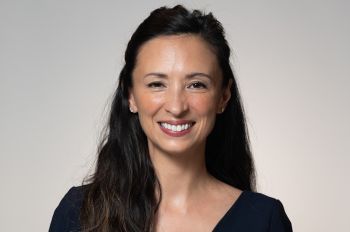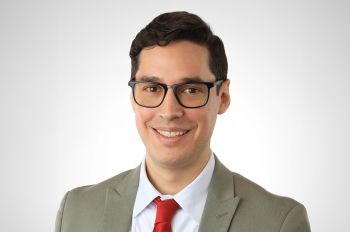IIT Chicago-Kent and the National Labor Relations Board to Explore “Hot Topics in Contemporary Labor Relations Law” at June 13 Program
The Institute for Law and the Workplace at IIT Chicago-Kent College of Law and Region 13 of the National Labor Relations Board (NLRB) will co-sponsor "Hot Topics in Contemporary Labor Relations Law" on June 13 from 8 a.m. to 5:45 p.m. at the law school, 565 West Adams Street (between Clinton and Jefferson) in Chicago.
The one-day conference is geared toward attorneys, labor relations and human resources managers, and union business representatives. Conference workshops will examine emerging and complex issues under the National Labor Relations Act (NLRA) as well as the basics of practice before the National Labor Relations Board. The program is eligible for 5.5 hours of Mandatory Continuing Legal Education credit and registration is required.
In the opening plenary session, NLRB member Philip A. Miscimarra and NLRB general counsel Richard F. Griffin Jr. will share their insights on making the transition from the role of an advocate to that of a presidential appointee. Prior to their appointments, Miscimarra was a partner in the Chicago office of Morgan Lewis & Bockius, and Griffin served as general counsel of the International Union of Operating Engineers.
A discussion of "Labor's New Strategies for Empowering Workers" will look at organizing in the fast-food and retail industries, one-day strikes, organizing efforts aimed at Walmart, and controversies over whether workers engaged in such activities are protected under the NLRA.
"A unique feature of this conference will be the opportunity for attendees to participate in facilitated discussions on specific issues during luncheon conversations we're calling ‘Table Topics,'" said Professor Martin H. Malin, director of the Institute for Law and the Workplace.
Afternoon sessions include a look at the proliferation of right-to-work laws in neighboring states. If the U.S. Supreme Court has handed down a decision on Harris v. Quinn by the time the conference is held, there will be a discussion of the case.
The NLRB's assertion of jurisdiction over charter schools and the collective bargaining rights of graduate assistants, faculty at religiously affiliated colleges, and college football players will be covered in a panel on "Education Issues." "The Affordable Care Act and Collective Bargaining" panel will focus on the impact of the new law's mandates on collective bargaining. "Contracts being negotiated now will typically extend past 2018, the date that the so-called ‘Cadillac tax' is scheduled to take effect," said Professor Malin.
"Participants will have an opportunity to look at issues and actions expected to reach the forefront by the end of 2014," said Professor Malin. "The NLRB's proposed changes to union election rules, reexamination of its prior decisions concerning employee use of employers' electronic communication systems, the handling of joint employers, class action waivers and the use of preliminary injunctions are among the issues we will be watching." In addition, the composition of the NLRB will change when board member Nancy Schiffer's term expires, leaving two Democrats and two Republicans sitting on the board.
To register or for more information, please e-mail cle@kentlaw.iit.edu or call (312) 906-5090.
Founded in 1888, IIT Chicago-Kent College of Law is the law school of Illinois Institute of Technology, a private, Ph.D.-granting institution with programs in engineering, architecture, law, business, human sciences, applied technology, science and design. Established in 1996, the Institute for Law and the Workplace is based at IIT Chicago-Kent College of Law. The institute is a national center for research, training, dialogue and reflection on the law that governs the workplace. The institute also serves as an intellectual home for the labor and employment law community, both in the Chicago area and nationwide. It pools the resources of leading academic scholars and the practicing professional community to train students and professionals, monitor policies and trends, and reflect upon issues confronting the labor and employment law community in a neutral setting.



